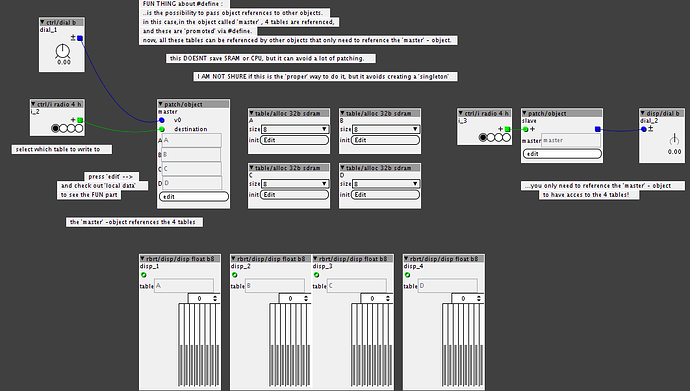hmm,
you can create a save/load object that's referring to ONE master object
which references the 4 tables, and saves them one after the other, to different files.
this will spare you having to reference tables via object attributes all over the place,
and simply make patching less confusing (aside from saving some SRAM,of course)
what you cannot do is to save data from different tables to the same file.
if you wanted to do this, you would have to merge the 4 tables into 1,first.
('fatfs' simply won't let you do this, and it makes sense)
also,hmm, I don't see a use-case for this, but maybe I'm just to focused on
my specific use-case:
what I'm working on is basically a 'master-object' that references
a large 16-bit sample-data table (to have a lot of sampling- time available)
and a small 32-bit table which holds all the start/end/etc info of all the samples.
the 2 tables need to be accesible by other objects (some just provide information
about a specific sample, others are handling SD-card I/O of the entire setup),
so the other objects only need to reference the 'master-object'.


